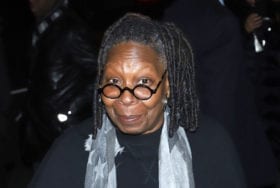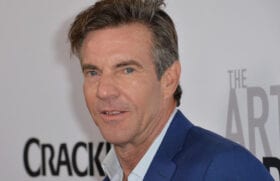NBC Sports’ go big or go home mentality for major events hits full speed this week as the company prepares to host Super Bowl XLIX from Phoenix on Sunday. Armed with the company’s “most comprehensive Super Bowl promotional effort ever” with Super Bowl-related content set to run on the likes of NBC, NBCSN, CNBC, MSNBC, USA, E!, Bravo, Syfy, The Weather Channel and Telemundo and a social media campaign that will offer “around-the-clock” coverage across all of NBC Sports’ social media platforms, the buildup for the game (with coverage set to kick off starting at noon on NBC) is molding anticipation for Sunday’s game with experts predicting record audiences.
Cynopsis Sports spoke with NBC Sports Group Chairman Mark Lazarus about the state of the company, its Super Bowl strategy, lessons learned and, of course, “deflategate.”
Lazarus on the state of NBC Sports: It’s been about three years since we brought the group together and rebranded NBC Sports Network. Now, we continue to grow all aspects of our business and align all of our brands together. When you look at our portfolio, we have the big event stuff as well as the ancillary businesses and they are growing as well. The four legs of our stool are the broadcast network, the two national cable networks in Golf channel and NBCSN, the regional sports networks and then a growing and successful digital business amplified by all the digital rights we have acquired. All four are thriving. Golf Channel is coming off 2014 tied for its best year ever. NBC Sports Network last year showed tremendous growth over 2013. Our big events, include the Olympics, Sunday Night Football, and our Notre Dame and golf broadcasts on NBC continue to be strong and a lot of what we have is exclusive. We are in the exclusivity business. We don’t aspire to do what everyone else is doing. There is not a day that we wish we were someone else.
On lessons learned in 2014: The Sochi Olympics was a big part of our year. What we learned from that while live and event television is important, we also had to curate the content for a time period when people would be able to watch. The big lesson is that you need to be live when you can, but curating is still important so people are able to watch. Of course, for the 2016 Olympics, we will be live all the time because it will take place in Rio.
On the new deal for boxing: There was a time when the heavyweight champion of the world was the most popular man in America. You think back to Ali, Frazier, Holmes, Tyson. There was a time when the best division in boxing was welterweights and everyone would talk about Hearns, Hagler and Leonard. We believe that our partnership with Al Haymon and his stable of fighters, which now numbers around 170, and putting boxing back on television is good for fans and will reenergize the sport. Having quality matchups instead of one-sided fights – which is what Al has committed to us – would be good for the sport and the sport would be good for us. If we can work with Al to promote some of the fights we may not have, the big PPV fights, that’s also good for our parent company at Comcast.
On NBC getting in the PPV game: Of course our company is already very much in it via Comcast. But for us as the purveyor of it, probably not. But we would like for it to be successful.
On preparing for the Super Bowl: All of our non-game activity has been led by Sam Flood, which will include six hours of pregame and shows on Friday and Saturday night as well. For game preparation, you will see content that will be important for fans and not just content that is pure football because the Super Bowl is bigger than just football. It is a pop culture event. We want to tell those stories about the city, the teams and the players. It is a marriage between art and commerce. I think we as a company are the best at the art form of creating those stories and covering the game. I’m biased obviously and would assume that Sean McManus and Eric Shanks would say the same, and they should.
I think we give marketers really good opportunities to showcase their brands to what would be roughly 115-120 million people who watch the game. I do, however, believe that many more people than that watch the game and that the current system don’t allow for accounting for parties, out-of-home viewing and those things. I believe the Super Bowl is actually underreported as far as how many people are watching.
On the evolution of sponsors: I think they put a lot of energy and creativity into their spots and that’s important. For the game commercials, I think it is smart how over time how sponsors are revealing what they are going to do and show their commercials in advance. I don’t think that impacts the fact the people still want to see them run in the context of the game and that is smart. In terms of pregame, sponsors are taking the approach of how they can integrate their brand into the telecast and be tied to the glow of the Super Bowl and still be authentic to the brand. I think that art form is where our producers work really well with the marketing community to do that.
On “deflategate”: A big part of our job is finding the right editorial balance in any sport. You go back to the Olympics and examine what our editorial responsibility as it relates to the Russian LGBT issue that people were talking about or the Russian potential (at that point) aggression against the Ukraine. Our job as a sports broadcaster is to cover the events as they unfold and report on them as they are affecting the events. We are not a “news organization,” especially while we are doing an event but we take very seriously our responsibility to cover news that impacts these events.
As for deflategate, I still don’t think everyone knows the facts. Everyone is talking about the game, it is getting a tremendous amount of play. But if you were to talk to anyone in football about it, we are talking about the Super Bowl for the wrong reasons right now. I would certainly prefer that we be talking about it for the pomp and circumstance, the game, the quality of the teams, the athletes and the traditions of the teams and the cities but we are faced with another situation here and I think we have been very balanced in reporting what we know are facts and will continue to do that. That said, I think it is still undetermined what actually took place.




